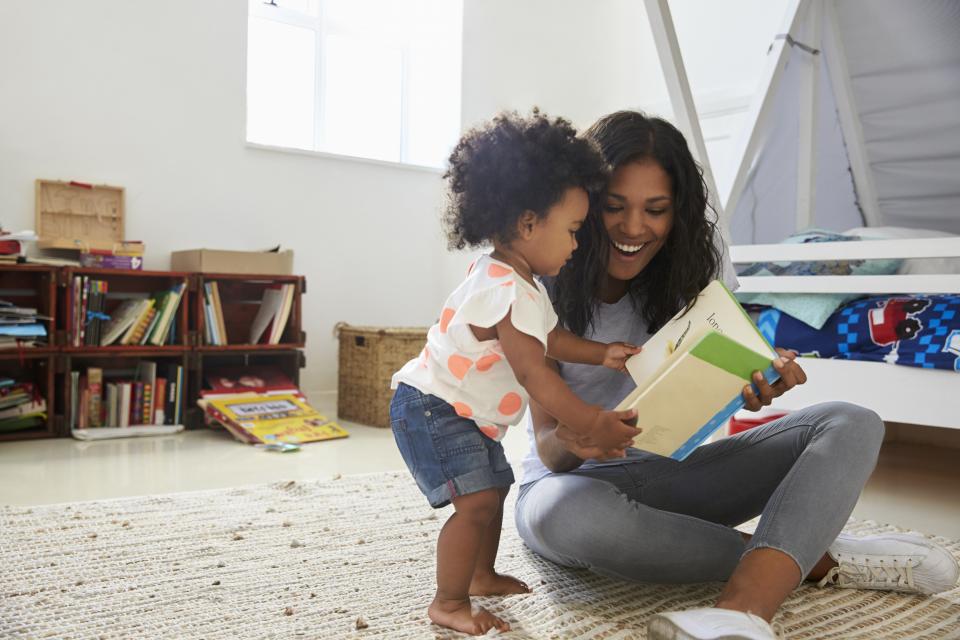Parenting Education: Free Resources for Parents

Parenting education provides a robust framework for understanding a child’s emotional, physical, and intellectual needs at different stages of their development. For families after a divorce or separation, these programs can also provide parents with the tools they need to promote family harmony, protect their children from inter-parental strife, and foster healthy relationships between family members.
During divorce or separation proceedings, parents may be court ordered to take a parenting education course; however, brushing up on parenting skills isn’t something that parents need to wait to be court ordered to do.
If you haven’t been court ordered and are not ready to commit to a paid course, there are still free resources to take advantage of while you’re deciding. Below we've compiled an introductory list of resources covering topics from childhood development to educational support. If you don't find the resource you're looking for below, search the OurFamilyWizard Regional Resources for additional organizations that can be found in your area.
Childhood Development
The CDC Childhood Development Materials
The needs of children change drastically as they age, and parents need to stay on top of those changes in order to provide their children with the proper emotional, physical, and intellectual support. There are numerous studies that can be found about childhood development, but the U.S. Centers for Disease Control (CDC) has put together some easily-digestible pamphlets for parents to peruse. Their 'Positive Parenting Tips' series is broken down by age range so you can find the information pertinent to your family immediately.
They also have additional pamphlets with information about providing support to children with certain medical conditions, such as Attention-Deficit/Hyperactivity Disorder (ADHD) and Hemophilia.
> Find the CDC's positive parenting tip series and more here
Emotional Support and Family Relationships
Circle of Security International
This organization's goal is to educate parents on healthy ways to support children, strengthen bonds, and raise them to be emotionally intelligent adults. These tips are useful no matter the family structure, but co-parents may be particularly interested in their 3-part series about navigating 'transitions,' whether that's dropping children off at school, putting them to bed, or, in the case of two-household families, making the change from one parent's home to the other. Read the first installment, Health and Secure Transitions: A First Look, here.
Circle of Security International provides additional frameworks for helping parents identify when emotional hang-ups, whether inherited from their own parents or developed as adults, are negatively affecting their interactions with their children. Watch the video below for a short introduction to what they label "Shark Music," or how our emotional backgrounds can influence our interactions without us noticing. Haga clic aquí para Español.
Hand in Hand Parenting
This organization's mission is to "provide parents with insights, skills, and support they need to listen to and connect with their children in a way that allows each child to thrive." While Hand in Hand parenting does have special-topic books for sale, as well as offering paid courses, their free parenting advice articles provide some worthy insight into building strong connections with children. Every article outlines concrete solutions for common situations, such as separation anxiety and preparing a child for the arrival of a new sibling. Explore parenting resources from Hand in Hand parenting here.
Education
Divorce can take a toll on a child's academics, especially immediately after the split. In order to lessen the impact that a separation has on a child's scholastic motivations, parents should make sure they're taking every step to engage them in their studies and support them if they're struggling.
National Education Association
When looking for the best ways to support a child academically, the National Education Association (NEA) can provide significant insight. Their help topics outline strategies for fostering curiosity in children, supporting them emotionally, and partnering with educators to provide well-rounded academic experiences. To encourage you to search their archives for inspiration, we've selected 3 posts to get you started:
U.S. Department of Education
The Department of Education has produced an impressive library of literature addressing the many ways parents can support their child's academic growth. While their pamphlets can be quite dense, they're very much worth a read. Exploring their 'Helping Your Child' series is a great place to start, as the pamphlets are not only filled with strategies but also activity suggestions for parents. In their Helping Your Child Learn Science booklet, for example, parents will find helpful bits of info like how to teach a kindergartener about surface tension and how to evaluate the merits of a science book aimed at children.
> Look through the Helping Your Child series
> La serie de Ayudando a su niño
Whether or not you've been court ordered to attend a parenting education course, investigating ways in which to support your children on your own free time provides real benefits to your family's well-being and stability. Beyond these free resources listed here, there are also numerous, low-cost online courses and materials that address a multitude of parenting topics. Parents can also explore the OurFamilyWizard blog categories and our solutions to common co-parenting problems for further insight into their own parenting strategies and styles.